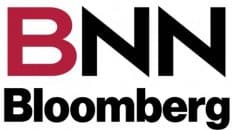Leaders of the western world have finally picked up the bottle they found on their political beaches to read the message from Ukraine, then belatedly decided to help the country out with a message in a barrel to the Russian leader Vladimir Putin.
Now, U.S. President Biden, the world’s largest producer and consumer of all fossil fuels, announced a ban on the import of all Russian energy commodities. One would think that this would result in a tympanic economic drum roll that would beat the Russian leader into submission.
Unfortunately, this announcement carried about the same weight as the earlier declaration by our own Prime Minister Justin Trudeau when he banned the import of Russian crude into this country. This amounted to all of 17,000 barrels per day. Not a game changer – or even a player in the deadly game being played by the Russian government and military.
The U.S. move is also heavy on “media friendly” theatrics.
The U.S. President Joe Biden claimed that the ban on Russian imports would mean 700,000 barrels per day of crude not reaching U.S. shores. That’s not quite right, because 500,000 bpd are refined products, like gasoline and diesel – not Russian crude.
The approximately 200,000 bpd of crude now being banned represents a loss of only 1% of U.S. daily refining capacity.
Gasoline and diesel prices have now reached record levels across North America and have given cause for questions on the supply status of crude oil and its refined offspring in the immediate and long term.
This week, we have seen prices increase by 12 cents per litre (cpl) one day and fall by 15 cpl two days later. The same went for crude oil prices.
I am not an empathetic cheerleader of the political fraternity, but President Biden is in a difficult position.
How can he get pump prices down?
I find it disturbing to see the anti-fossil fuel proponent now, with hat in hand, asking OPEC members to increase crude oil production to make up for the decrease in Russian supply – all caused by his own sanctions.
It gets more concerning when he now considers reinstating Venezuela as a new, ‘best oil buddy.’
Meanwhile, in his own backyard oil patch, his biggest supplier – Canada – sits on his northern border with 1,000,000 bpd of extra supply moth-balled in the Keystone XL file he decided to cancel on his first day in office and then hide under his political carpet.
– Roger McKnight – B.Sc., Senior Petroleum Analyst








Add comment